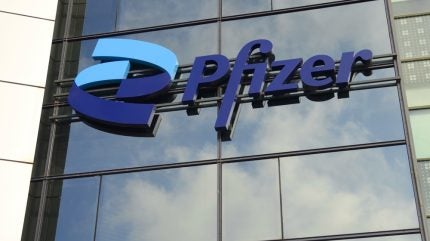

Pfizer will end the global commercialisation of its haemophilia gene therapy Beqvez (fidanacogene elaparvovec) amid low demand and interest.
A Pfizer spokesperson told Pharmaceutical Technology in a statement that the decision, which was first reported by Nikkei Asia on 20 February, was due to “limited interest patients and their doctors have demonstrated in haemophilia gene therapies to date”.

Discover B2B Marketing That Performs
Combine business intelligence and editorial excellence to reach engaged professionals across 36 leading media platforms.
Indicated for the treatment of adults with moderate to severe haemophilia B, Beqvez was first approved by Health Canada in January 2024, and by the US Food and Drug Administration (FDA) several months later. The European Commission approved the drug in July 2024, where it was previously known under the brand name Durveqtix.
Beqvez was developed in partnership with the now Roche-owned Spark Therapeutics and is one of two gene therapies manufactured by Pfizer for the bleeding disorder. The US big pharma company also markets Hympavzi (marstacimab-hncq) for the treatment of haemophilia A or B. Hympavzi, approved by the FDA in October 2024, will now be a focus of the company’s gene therapy plans for this condition going forward.
“Our aim is to focus our efforts on and rededicate our time and resources to those treatments that we believe will have the greatest impact on patients, such as Hympavzi, a first-of-its-kind non-factor treatment option,” the Pfizer spokesperson said.
Pfizer discontinuing Beqvez once again highlights the struggles pharma companies have in keeping cell and gene therapies profitable. Narrow target populations and scalability challenges mean sustained commercialisation of treatments is difficult. CSL has also reported slower-than-expected sales for Hemgenix, whilst BioMarin stopped investing further resources into haemophilia A gene therapy Roctavian focusing only on markets where it is reimbursed to make the drug profitable by the end of this year. Today [21 February], bluebird bio, a biotech that has two approved gene therapies in blood disorders, announced it will be acquired by two global investment firms to secure its future. This news came after the company had laid off 25% of its staff in 2024 after struggles to break even with cash flow.

US Tariffs are shifting - will you react or anticipate?
Don’t let policy changes catch you off guard. Stay proactive with real-time data and expert analysis.
By GlobalDataBeqvez works by providing patients with the necessary gene to produce factor IX (FIX), a protein that helps blood clot. Haemophilia B patients lack the FIX gene, meaning bleeds can start spontaneously and take longer to stop. Due to the condition being sex-linked, haemophilia B primarily affects males – around 33,000 men live with the disease in the US, according to the Centers for Disease Control and Prevention (CDC). Beqvez, administered as a one-time therapy, has demonstrated the ability to significantly decrease the number of bleeding episodes in a year.
The pharma industry turned its attention to Beqvez after Pfizer placed a hefty $3.5m price tag for the treatment. At the time, it became one of the two most expensive drugs in the world. Pfizer decided to match the price of CSL and uniQure’s haemophilia B treatment Hemgenix, already at market after gaining FDA approval first in 2022, rather than undercutting its rivals.
Cell & Gene Therapy coverage on Pharmaceutical Technology is supported by Cytiva.
Editorial content is independently produced and follows the highest standards of journalistic integrity. Topic sponsors are not involved in the creation of editorial content.





